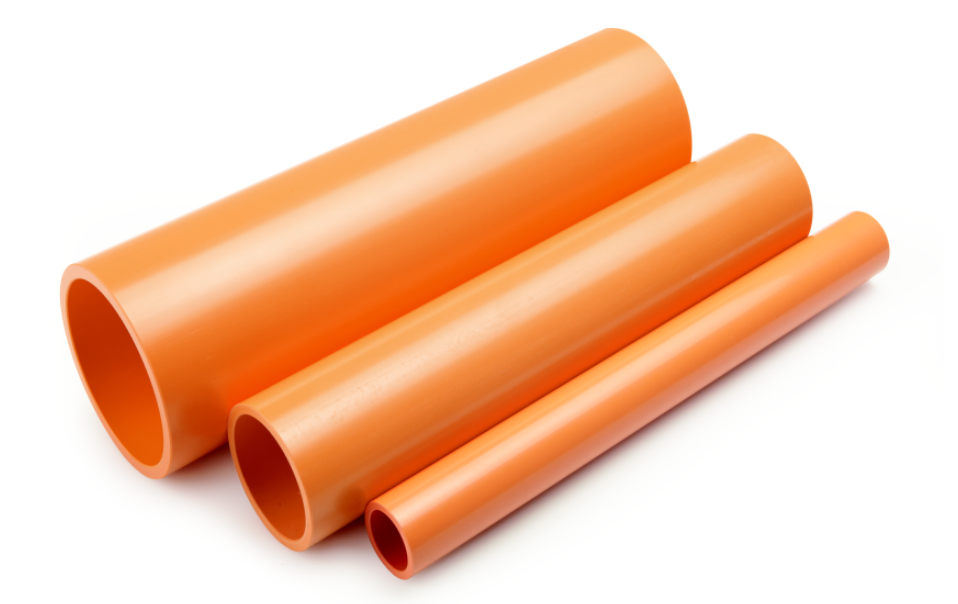CPVC or chlorinated polyvinyl chloride is a thermoplastic polymer. It is produced by the chlorination of PVC polymers. This chlorination is done to obtain properties such as greater flexibility and high-temperature resistance.

The manufacturing process includes the chlorination of PVC through free radical chlorination. This reaction is initiated using UV energy, which can decompose chlorine gas into radicals. These radicals then react with PVC and partially replace the hydrogen atom with a chlorine atom. Various additives are also incorporated into the polymer material to make it easy to process.
CPVC can withstand very high temperatures (about 90oC). It is bendable, weldable and has flame-retardant properties. This means it can slow or stop the spread of a fire. CPVC is resistant to many acids, bases, alcohols, hydrocarbons, etc. But it is not stable to chlorinated hydrocarbons. CPVC pipes can conduct high-temperature liquids.